 Ridley Scott's addition to the Alien franchise has finally hit theaters following a fantastic marketing blitz. Prometheus is a good, but at points flawed, predecessor to his own 1979 start to the franchise. One of my more anticipated films of the year, I found it to be a decent film, living up to my somewhat lowered expectations, and certainly one that I'll watch again.
Ridley Scott's addition to the Alien franchise has finally hit theaters following a fantastic marketing blitz. Prometheus is a good, but at points flawed, predecessor to his own 1979 start to the franchise. One of my more anticipated films of the year, I found it to be a decent film, living up to my somewhat lowered expectations, and certainly one that I'll watch again.
Prometheus follows a lot of similar formula as that of Aliens, with some notable differences. An archeological team comes up with a series of star maps that points the team to a distant world with extraterrestrial life. An interstellar expedition is assembled and financed, and sent off to a moon designated LV-223 in a far off system. Overseen by a robot overseer on the 200 day trip, the crew lands on the moon, and discover an unnatural feature. Suiting up, the scientific contingent set off to find what message might have been left behind. Helmets come off, people get lost and suddenly, chaos ensues as the relics infect the crew.
The key to enjoying Prometheus seems to be ignoring that the film is connected to the Alien universe. While it's not as good as Alien, I did enjoy it a bit more than Aliens, and when compared to your average summer blockbuster, Prometheus comes off rather well.
What's notable for Prometheus is how absolutely gorgeous it is: the design of the world is one of the best that I've seen, a spaceship that looks practical and well-rooted in the modern world, much as the Nostromo likely felt back when it was first released. Outside of the ship, the film is treated to a phenomenal opening credit scene, and continues to put together some wonderful planetscapes and general images. It's a slick, great movie, visually. Even the 3D, which I normally can't stand, worked exceptionally well throughout the film - there were none of the flat sections where the film reverts back to 2D outside of the action sequences. Here, it's seamlessly in the background, where it's never intrusive.
Prometheus's story is where the film begins to stumble, while also attempting some very ambitious things. There's a lot that Scott's tried to pack into the movie, ranging from overarching themes of science verses faith, the idea of maker-gods who have helped along the human race, to the responsibilities of science and technology. It's easy to see where the ideas are, and where they're attempting to go, but it's lost in a bit of a muddle. While watching the film, I got the distinct impression that there was quite a bit cut out of the movie to keep the run time under a certain level, and I can't help but wonder if somewhere down the road, we'll get the bits that were cut out, which will hopefully help to reinforce some of the characters and overarching themes.
Beyond that, some of the letdowns come with some of the really stupid things that the characters do throughout the movie. Characters take their helmets off at every point, even when it seems like it might be a really bad idea, quarantine protocols are ignored, and everything that should be done to keep a trillion dollar mission on schedule and safe really isn't done. This is where Prometheus is a disappointment: there's a lot of potential that's lost in the characters and their actions.
The characters frequently have their moments to shine: Charlize Theron does a fantastic job as Meredith Vickers, the Weyland Corporation rep, while Noomi Rapace's Elizabeth Shaw finally finds her legs towards the end of the film, after she's been pushed to the brink. Most notable, however, is David, portrayed by Michael Fassbender, the ship's robot who has some considerable issues when it comes to his maker, Peter Weyland. Frequently though, each of the characters are drawn with too broad a brush and the often come off poorly. Other characters, like Captain Janek and the bridge crew, have great appearances - Benedict Wong especially, but just little enough to make us want more.
Where the story really does work is looking at the big ideas, and I applaud the film for really trying something, rather than simply mirroring the audience's expectations. The idea of an alien race bringing their technology to seed a world, only to find that they've made a mistake is a rather epic idea, and I'm thrilled to see the ideas there: I simply wish that they'd been followed up on a bit more. The ideas of religion and science that come out of those ideas are similarly brought up, and not fully explored. While that's not great, I can't really think of the last major science fiction movie that put together interesting ideas with a dramatic story, (Maybe Inception?) and I'm happy to see a film at least try to do something a bit different.
Weirdly, this film felt very optimistic throughout: focusing on exploring and learning about our surroundings, it's an interesting change from many of the reactionary (and still excellent) science fiction out there, even up through the end. Where Alien was purely a horror film set in space, Prometheus feels more like a space opera film, with quite a few horror elements.
Looking back, the film is stymied by its lack of focus: there's several subplots, focusing on David/Weyland, the Engineers, and corporate intentions, all of which try to share the space with each other. The film never quite meshes in the way that it should have, and coupled with the extraordinarily high expectations set forth by the film's marketing contingent; it's no wonder that the film has received such mixed reviews. In a lot of ways, the film would have likely fared better if its connections to Alien had been completely severed, with it released as a stand-alone science fiction adventure. Here lies the major problem when attempting to bring back a well-worn franchise with an established fanbase: it's almost impossible to capture what everybody loved about it, and entrenched expectations really prevent the filmmakers from really innovating. Prometheus is able to get away from this a bit: I'm sure that continuity hounds and nitpickers will argue for a long time about this, but Scott really is able to pull out a good movie out for his return to the genre.
But, despite all of the issues with the film, I really enjoyed it. I'm a sucker for great imagery in the genre, and Prometheus certainly delivers here. But beyond that is a film that, once some of the extra baggage is ignored, is a decent film when you look at it against the lesser Alien films, or even the broad canon of summertime blockbusters. It doesn't quite stack up as high as Blade Runner and Alien do in the greater picture, but it's a good film that should have been great. I can live with that.
 With October's Horror duo over with, I decided that it was time to shift gears again in preparation for the really big fantasy event of the year: The Hobbit, and thus focus on some of the background on Fantasy literature, which I haven't really focused on thus far. Like Science Fiction, context for the development of Tolkien's works relies on an earlier look at what came before, and the notable author that I became interested in was George MacDonald, who really jump started the Fantasy genre by creating a number of modern fairy tales that inspired many fantasy authors that came before him. He's not a household name like Mary Shelley, Jules Verne or H.G. Wells, but he was no less influential in his works, which went on to inspire authors such as J.R.R. Tolkien and C.S. Lewis.
With October's Horror duo over with, I decided that it was time to shift gears again in preparation for the really big fantasy event of the year: The Hobbit, and thus focus on some of the background on Fantasy literature, which I haven't really focused on thus far. Like Science Fiction, context for the development of Tolkien's works relies on an earlier look at what came before, and the notable author that I became interested in was George MacDonald, who really jump started the Fantasy genre by creating a number of modern fairy tales that inspired many fantasy authors that came before him. He's not a household name like Mary Shelley, Jules Verne or H.G. Wells, but he was no less influential in his works, which went on to inspire authors such as J.R.R. Tolkien and C.S. Lewis.
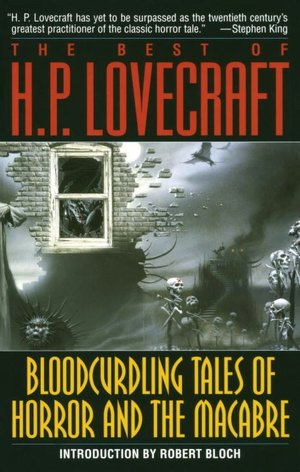 With October a traditionally - horror themed month capped with Halloween, it seemed appropriate to follow up Bram Stoker and Dracula with another notable horror author: H.P. Lovecraft. Hugely influential in the horror genre, Lovecraft is an author that I got into while in college, with a course on Gothic Literature. I've found Lovecraft's stories to be delightfully macabre, and living in Vermont, I can identify with his love of the sheer age of the location, and can see just why this corner of the country is so suited for horror fiction.
With October a traditionally - horror themed month capped with Halloween, it seemed appropriate to follow up Bram Stoker and Dracula with another notable horror author: H.P. Lovecraft. Hugely influential in the horror genre, Lovecraft is an author that I got into while in college, with a course on Gothic Literature. I've found Lovecraft's stories to be delightfully macabre, and living in Vermont, I can identify with his love of the sheer age of the location, and can see just why this corner of the country is so suited for horror fiction.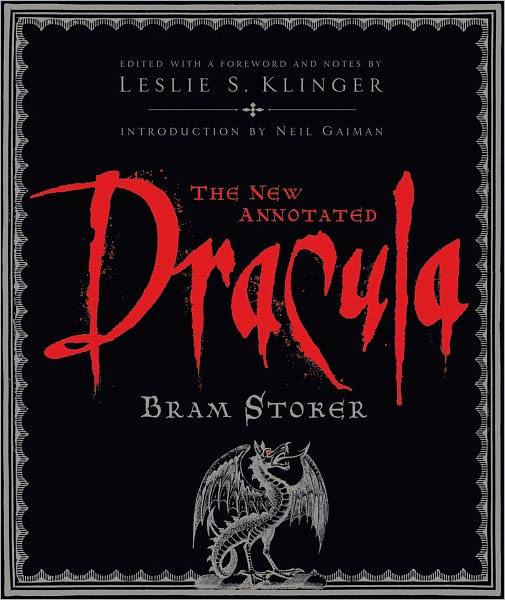
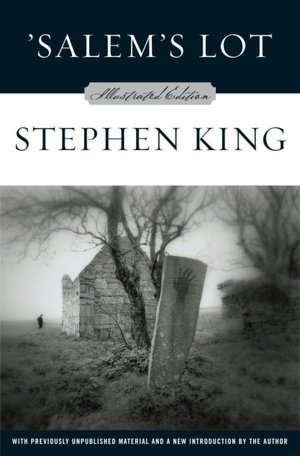 I had a gap in the schedule, and it seemed like a good time to start getting ready for October. Somewhere, I decided that I wanted to take a look at a broad swath of a genre, and because I was working on the pieces for October (Dracula), it seemed as good a time as any to see where Dracula fits into the larger picture. Turning to social media, I asked people what they thought were some of the more important vampire novels, coming up with an impressive list that had to be really pared down. There's not a lot of surprises on it, but I did find a couple of interesting points: many people believe that Dracula was *the* original Vampire novel, when in fact it's predated by a number of others that in turn influenced Dracula. Stoker's novel proves to be a tipping point, and there's quite a bit of variety after the publication of that book.
I had a gap in the schedule, and it seemed like a good time to start getting ready for October. Somewhere, I decided that I wanted to take a look at a broad swath of a genre, and because I was working on the pieces for October (Dracula), it seemed as good a time as any to see where Dracula fits into the larger picture. Turning to social media, I asked people what they thought were some of the more important vampire novels, coming up with an impressive list that had to be really pared down. There's not a lot of surprises on it, but I did find a couple of interesting points: many people believe that Dracula was *the* original Vampire novel, when in fact it's predated by a number of others that in turn influenced Dracula. Stoker's novel proves to be a tipping point, and there's quite a bit of variety after the publication of that book.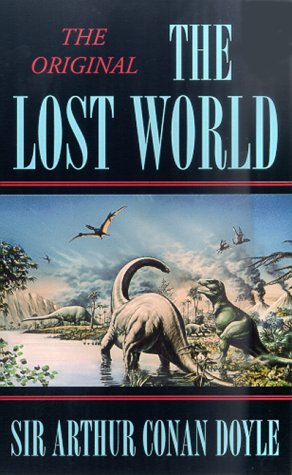 My latest post for Kirkus Reviews is now up online. Originally, I'd planned on finishing out the Science Romances with
My latest post for Kirkus Reviews is now up online. Originally, I'd planned on finishing out the Science Romances with  Over on Kirkus Reviews, I have a bit of a roundup post that looks back over the posts that I've written, looking at the foundational stories of the genre, and how they all fit together in the bigger picture. You can read it over
Over on Kirkus Reviews, I have a bit of a roundup post that looks back over the posts that I've written, looking at the foundational stories of the genre, and how they all fit together in the bigger picture. You can read it over 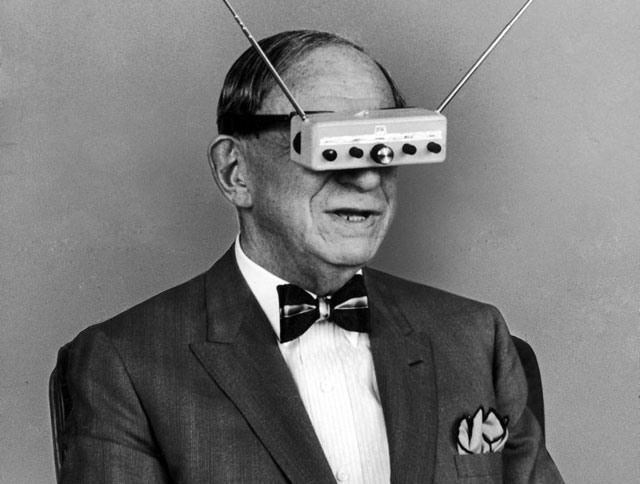
 This week on the Kirkus Reviews Blog, I jump ahead from some of the older stories to a very modern author:
This week on the Kirkus Reviews Blog, I jump ahead from some of the older stories to a very modern author: 
 My latest column for Kirkus Reviews is now online! In it, I talk about Jules Verne and his fantastic novel From the Earth to the Moon. I
My latest column for Kirkus Reviews is now online! In it, I talk about Jules Verne and his fantastic novel From the Earth to the Moon. I  Over on the Kirkus Reviews blog, I've turned my attention to one of my absolute favorite science fiction novels, The War of the Worlds, by H.G. Wells. One of the absolute greatest works of science fiction, it's a story that I've continually learned more about ever since I first read it so many years ago. You can read
Over on the Kirkus Reviews blog, I've turned my attention to one of my absolute favorite science fiction novels, The War of the Worlds, by H.G. Wells. One of the absolute greatest works of science fiction, it's a story that I've continually learned more about ever since I first read it so many years ago. You can read  Ridley Scott's addition to the Alien franchise has finally hit theaters following a fantastic marketing blitz. Prometheus is a good, but at points flawed, predecessor to his own 1979 start to the franchise. One of my more anticipated films of the year, I found it to be a decent film, living up to my somewhat lowered expectations, and certainly one that I'll watch again.
Ridley Scott's addition to the Alien franchise has finally hit theaters following a fantastic marketing blitz. Prometheus is a good, but at points flawed, predecessor to his own 1979 start to the franchise. One of my more anticipated films of the year, I found it to be a decent film, living up to my somewhat lowered expectations, and certainly one that I'll watch again. Over on the Kirkus Reviews Blog, I've written up a short sketch of Ray Bradbury's life,
Over on the Kirkus Reviews Blog, I've written up a short sketch of Ray Bradbury's life, 
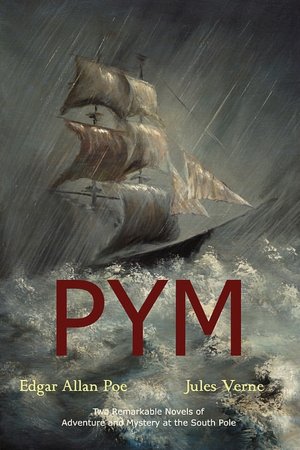 My latest column for Kirkus reviews has just been posted! While doing some reading on Edgar Allan Poe, I came across an interesting point: Poe only wrote a single novel, The Narrative of Arthur Gordon Pym of Nantucket, which was later picked up upon by legendary science fiction author, Jules Verne in An Antarctic Mystery. In a large way, it was one of the first works of fan fiction!
My latest column for Kirkus reviews has just been posted! While doing some reading on Edgar Allan Poe, I came across an interesting point: Poe only wrote a single novel, The Narrative of Arthur Gordon Pym of Nantucket, which was later picked up upon by legendary science fiction author, Jules Verne in An Antarctic Mystery. In a large way, it was one of the first works of fan fiction! 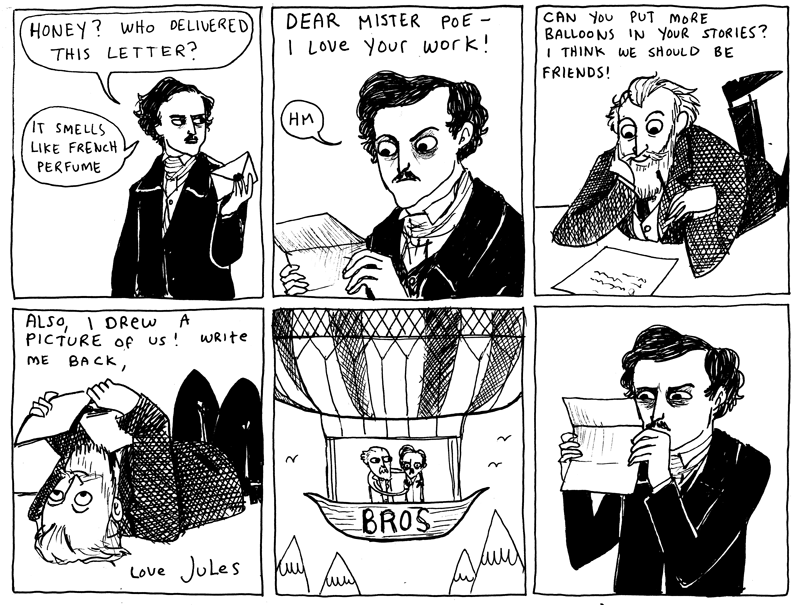


 This past weekend, the Hugo award nominations were announced, with some great things on the ballot. The full list can be found
This past weekend, the Hugo award nominations were announced, with some great things on the ballot. The full list can be found 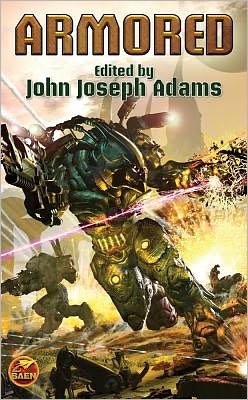 Tomorrow, John Joseph Adam's latest original anthology, Armored, hits stores. I'm pretty excited for this one, because I've read most of it already. Last year, the book was announced, and I got to help out a bit with some of the behind the scenes work in getting the book up and running: slush reading, some recommendations, and thoughts that I had about the stories that I read.
Tomorrow, John Joseph Adam's latest original anthology, Armored, hits stores. I'm pretty excited for this one, because I've read most of it already. Last year, the book was announced, and I got to help out a bit with some of the behind the scenes work in getting the book up and running: slush reading, some recommendations, and thoughts that I had about the stories that I read.